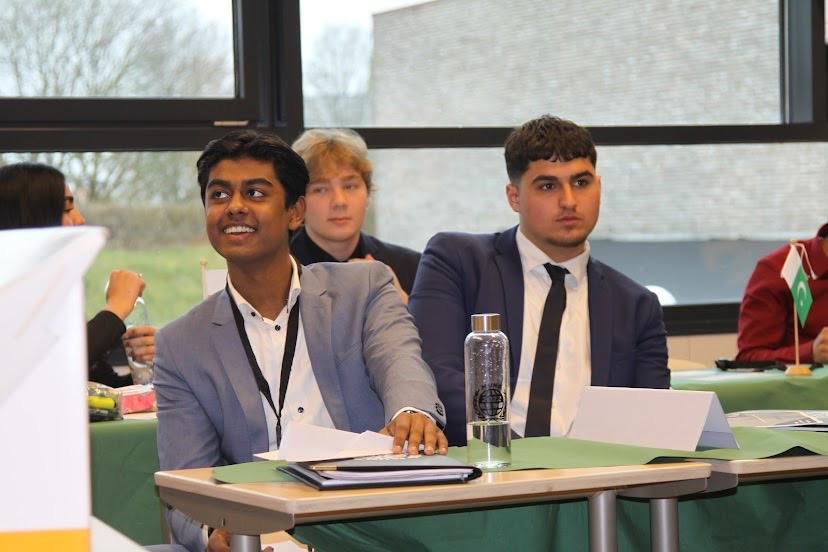Committees
The United Nations is an international organization whose aims are to facilitate cooperation in international law, international security, economic development, social progress, human rights, and - perhaps most importantly - achieving world peace.
Like the real UN, MUNA is divided into several committees. The main bodies at MUNA are in some ways different than at the real UN for practical reasons. For example, instead of a Human Rights Council and a GA2 on Economic and Financial affairs, MUNA works with a GA2 on Human Rights. MUNA also houses the Historical Committee, dealing with important issues that have happened in the past.

General Assemblies
Each GA committee will have one delegate per country. These delegates will be representing their country’s policy in those committees. After the sub- committees of the General Assembly have debated and approved a number ofresolutions, one or two of these approved resolutions will be addressed in the plenary session of the General Assembly. The General Assembly sub committees will address 3 or 4 issues per committee.
GA 1 – Disarmament and International security
This committee will focus on issues concerning disarmament and international security. This is the equivalent of the First Committee of United Nations General Assembly. MUNA will not have another separate disarmament committee.
GA 2 – Human Rights
At the real UN, the Second Committee deals with economic and financial issues. Human rights issues at the real UN are discussed in the Human Rights Council. Because we have limited classrooms available at MUNA, we have no room for more than ten committees. Therefore, we have decided to run a GA2 on human rights. The procedures are similar to other GA committees.
GA 3 – Environmental, Humanitarian and Health issues
This committee will focus on a number of different issues concerning current environmental, humanitarian and health; issues that affect people all over the world. Because of the pressing issue of the environment, MUNA added environment to its "Third Committee", and gave it a slightly different name than the name used at the real UN for its Third Committee (Social, Humanitarian and Cultural).
GA 4 – Special Political and Decolonization Committee
This commission of Special and Political Decolonization (SPECPOL) is mainly concerned about the well-being of non-self-governing territories, such as ex-colonies. It focuses on resolving the issues concerning the road to independence in a peaceful way. Over the years the focus of GA 4 has changed from dealing with ex-colonies to border issues and issues regarding (new) territories in general. For example, GA4 is also concerned with protecting natural resources and protecting the rights of indigenous people.
Crisis Committee
The Crisis Committee is a committee in which delegates must respond quickly and decisively to sudden dramatic political, social, or environmental events. These events (or 'crises') become more intense and interconnected during the course of the conference, usually leading up to large-scale disasters by the end of the day, unless delegates are able to prevent them.
Futuristic Council
The Futuristic Council takes place in the future. You will go through multiple time periods, each with another world order and different issues. There could be new alliances or new enemies. You will have to adapt to every time period.
Historical Committee
The Historical committee is the diplomacy of the past. In this council delegates will represent one of nine great powers of Europe in the period between the two World Wars, engaging in the delicate arts of wartime negotiations, forming alliances, knowing who to trust, and deception. Achieving the goal of controlling Europe may not necessarily go smoothly however, and then when diplomacy fails, one must go to war.
The International Court of Justice (ICJ)
The International Court of Justice is the primary judicial organ of the UnitedNations, established in 1945. It functions as a normal judicial court, in which cases between nations are examined by utilization of international agreements and treaties. The Model ICJ procedures differ from the original court in order to keep the debate attractive and to stimulate involvement for all participants. Important: the rules of procedures of the MUNA ICJ can be found under Conference > Downloads on the MUNA website.
The Security Council
The Security Council is the most powerful body in the United Nations and deals with questions regarding international security. The Security Council at MUNA will have one or two delegates representing each nation. MUNA always selects the countries that were present in the SC of the real UN in the year before the MUNA conference. The permanent members China, the United Kingdom, the United States of America, the Russian Federation and France are always present. The permanent five have the power of veto.
Downloads
List of relevant documents you can download.
Research reports will be uploaded soon.